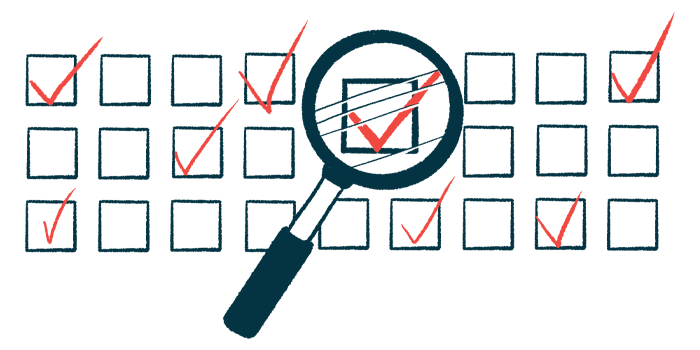Interviews Reveal Struggles With Hunger, Anxiety for People With PWS
Written by |

Adolescents and adults with Prader-Willi syndrome (PWS) say they struggle with constant hunger and the urge to seek food, according to an interview-based study.
Participants experienced difficulties with anxiety, behavioral outbursts, changes in schedule, and schooling, with many trying to distance themselves from the syndrome.
They also expressed the need for new medicines that reduce hunger and anxiety, or that can cure PWS.
The study, “‘The cure for us is a lot of things’: How young people with Prader-Willi syndrome view themselves and future clinical trials,” was published in the Journal of Applied Research in Intellectual Disabilities.
PWS is caused by the loss of or defects in paternal genes that control metabolism, appetite, growth, sleep, intellectual abilities, and social behavior.
Hallmark symptoms include an insatiable appetite, known as hyperphagia, that can lead to obesity. Behavioral problems such as temper outbursts, stubbornness, and obsessive-compulsive tendencies can also occur.
Although studies have focused on the self-perception of people with intellectual disabilities, such as Down syndrome, few studies have explored how people with PWS perceive themselves. Furthermore, research is also needed on how patients view new therapeutics to treat their condition.
To understand more, researchers at Vanderbilt University in Tennessee conducted interviews with 21 people with PWS, ages 14 to 38, asking how they understood their syndrome and its impact on their lives, and their opinions on new treatments.
All participants lived at home in the U.S., 57% were female, and 52% were in high school. Among these, 35% were classified as normal weight, 25% as overweight, and 40% as obese. A total of 10% had average intellectual abilities, 30% were below average, 40% were borderline intellectually disabled, 5% had mild intellectual disabilities, and 15% were moderately disabled.
Participants were first asked how they thought PWS affected them in their everyday life. Depending on the responses, they were asked about weight, anxiety, or behavioral outbursts. Individuals were then asked about new medications and any other insights about living with PWS that others should know.
Most participants (71%) responded and engaged with interviewers, while six had difficulties understanding the questions or expressing their thoughts.
All respondents said they lived with persistent hunger and frequent urges to seek food and eat.
“Food calls out to me, I can’t think of anything else until I eat it,” said one participant, Emily.
Another, Kody, added, “Then in the morning, food is like waking me up, that’s the problem with me.”
Participants expressed their hunger and need for food in negative, emotionally charged language, using terms such as “really hard,” “awful,” and “upsetting,” as well as “life-threatening,” “like cancer,” and “food is a poison.”
“Like the food around me, it’s like a drug that kills me. The food is a poisonous drug that kills me,” said Thomas.
In contrast to the need for food, fewer participants (47%) said their weight was a problem. Although maintaining or losing weight was difficult, responses were less negative compared to hunger, “suggesting that weight pales in significance relative to chronic hunger,” the researchers wrote.
In 40% of responses, PWS individuals said their families help them with weight by making food inaccessible at home.
“Like my parents lock the pantry and stuff and that’s for me,” said Taylor.
“Parents tell your kids about PWS at the right age,” said Kyle. “Then you can help them manage food.”
A majority (60%) said it was difficult going out into the community.
Kaylee said “You can’t go where they have food around.”
And “there is usually gonna be food around,” said Gabe.
James said: “Fast food, it’s everywhere. I am surrounded by food I shouldn’t eat.”
Participants also said their hunger limited relationships with friends and family, as well as their employment or educational goals.
“PWS affects the jobs that you get and how things go in the community, you can’t go where they have food around,” said Kaylee.
A total of 61% of respondents had strategies to manage their hunger and desire to seek food, including getting help from friends, using social limitations against stealing food, and developing eating methods.
“Sometimes I put notes on my hands,” said Gabe. “To remember things. So, tomorrow there is a girl’s track meet and there’s going to be cookies. So, the note would warn me don’t go to it.”
Most (84%) said PWS meant persistent difficulties controlling anxiety, anger, and stress. Participants used a variety of terms, including “stressed out,” “worried,” “anxious,” “angry,” “crazy,” “upset,” “bad,” and “occasionally sad.”
“I am getting nervous throughout the whole day,” said Sophie.
“Sometimes I just lose my temper on something or get emotional,” Rose said. “It’s like crazy the way I am talking or whatever.”
Some participants said their worries and outbursts were due to feeling hungry, being denied food, being provoked by a parent, and problems with thinking, as well as unanticipated changes to their routines or plans.
“Whenever there’s a change, that gets me upset,” Blake said. “When they just change it on me and not tell me. That gets me angry. When they tell me ahead of time, I’m fine.”
Most said attending school was stressful, triggered anxiety, and was a negative experience. Difficulties included problems with learning, homework, tests, and being teased. Those no longer in school made most of these comments, “suggesting that schooling remained emotionally salient for them even as young adults,” the scientists wrote.
“When I’m at school, working on something I’m not sure how to do it, PWS affects the way I think or get things done,” said Rose.
“Kids made fun of me and called me fat,” James said. “That made me sad, made me down.”
A majority (61%) said they distance themselves from PWS, with some denying having PWS, while others wished it away or minimized the impact of being overweight. Some suggested PWS is not who they are, but it’s the syndrome that takes them over and is responsible for overeating and outbursts.
“It’s like when I get too out of control, I can do bad things,” Max said. “Yeah, and it’s not myself, it’s the PWS.”
“I won’t be hungry, but my Prader-Willi will tell my brain that I’m still hungry,” Anna said.
All respondents supported the need for new therapies to treat PWS, with 80% saying they wanted medicines that controlled their hunger and made it easier to lose weight.
“Life would be different because you are not thinking about food all of the time,” Kody said. Or as Gabe noted, “You could do stuff without battling yourself.”
A total of 67% said new medicines would make them happier, and less stressed out and anxious, while 47% said how reduced hunger or anxiety would help with relationships. Similarly, 60% described potential positive outcomes of new medicines, such as meeting their life goals, living independently, having more employment opportunities, and attending college or job training programs.
“It would help people like us in the long run to be more independent,” Katlyn said. “Like work at a job where there is food. I could go to school myself. I want to go to college.”
Although interviews did not use the word “cure,” 47% saw new medicines as a cure for PWS. “Cure the hunger and completely cure the urge to seek food,” Jacob said.
Several participants (47%) expressed the need for greater awareness about PWS among the public and the companies developing therapeutics. This, the researchers wrote, indicated that “they understood that their condition is rare, and that increased knowledge is an important step toward new drug development.”
A study participant, Thomas, said: “I want them to know about PWS and spread it all over the news!”
“I want the drug makers to allow everybody the opportunities to do the studies,” Jacob said. “A lot of them I can’t do because I’m not in that age group.”
Finally, the researchers conducted a statistical analysis and found no significant correlations between discussed themes and age, PWS genetics, body weight, or cognitive abilities. However, males were about four times more likely to distance themselves from PWS than females (68% vs. 17%).
“This study is the first to give voice to people with PWS, and how they perceive their condition and the need for new pharmacological treatments,” the investigators wrote. “Participants conveyed how hard they work every day to manage the many challenges of their syndrome.”
“At the same time, they also envision future goals and a better life for themselves and their families, reminding us that people with disabilities are much more than their limitations or chromosomal anomalies,” they added.








